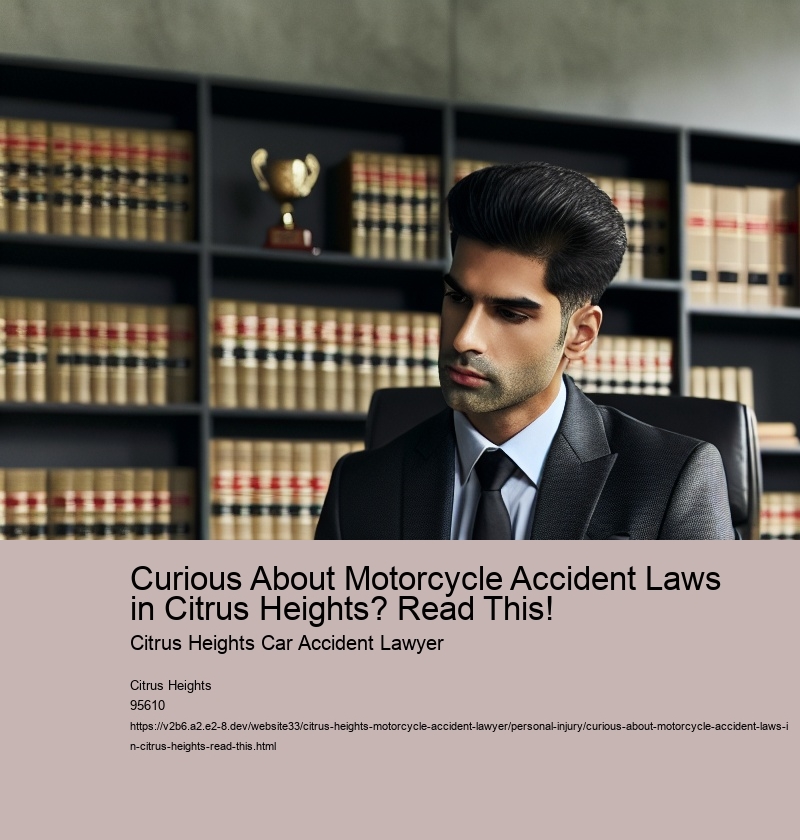Curious About Motorcycle Accident Laws in Citrus Heights? Read This!
sports injury
Curious About Motorcycle Accident Laws in Citrus Heights? Protect Your Rights: Citrus Heights Motorcycle Lawyer Tips . Read This!
Motorcycle accidents are unfortunate incidents that can lead to severe consequences for those involved. In places like Citrus Heights, understanding the legal landscape surrounding motorcycle accidents is crucial for riders, drivers, and pedestrians alike. The laws governing these accidents are designed not only to protect the rights of those involved but also to ensure that justice is served fairly and efficiently. If you're curious about motorcycle accident laws in Citrus Heights, this essay will provide you with a comprehensive overview.
Understanding the Basics

sports injury
Motorcycle accident laws in Citrus Heights fall under California state law, which is known for its detailed and comprehensive approach to traffic regulations. One of the most important aspects of these laws is the emphasis on helmet use. California law mandates that all motorcycle riders and passengers wear a Department of Transportation (DOT)-approved helmet.
Curious About Motorcycle Accident Laws in Citrus Heights? Read This! - sports injury
- legal aid
- surveillance
- police brutality
- first responder
- customer
- defense
Liability and Fault

In the event of a motorcycle accident, determining liability is a critical step. spinal cord California follows a "fault" system, meaning the party responsible for causing the accident is liable for damages. This means that if you are involved in a motorcycle accident, the insurance company of the at-fault party will be responsible for compensating the injured party. However, determining fault can be complex and often involves thorough investigations, witness testimonies, and accident reconstruction.
Furthermore, California operates under a "comparative negligence" rule. This means that if you are partially at fault for the accident, your compensation may be reduced by your percentage of fault. For instance, if you are found to be 20% at fault for the accident, your compensation will be reduced by 20%. This aspect of the law underscores the importance of having skilled legal representation to ensure that fault is accurately assessed and fairly distributed.

Insurance Requirements
Motorcycle insurance is another critical component of motorcycle accident laws in Citrus Heights.
Curious About Motorcycle Accident Laws in Citrus Heights? Read This! - spinal cord
- medical record
- advocacy
- unjust enrichment
- cogwheel
- justice
- injury
- major trauma
- Monterey County
Legal Recourse for Victims
Victims of motorcycle accidents in Citrus Heights have several legal avenues available to them. They can file a personal injury lawsuit to seek compensation for medical expenses, lost wages, pain and suffering, and other damages. The statute of limitations for personal injury claims in California is generally two years from the date of the accident. This means that it is crucial for victims to act promptly to preserve their right to seek compensation.
Additionally, if a motorcycle accident results in a fatality, the family of the deceased may file a wrongful death lawsuit. This type of lawsuit seeks to compensate the family for their loss and can cover funeral expenses, loss of companionship, and other related damages.
Conclusion
Navigating the legal aftermath of a motorcycle accident in Citrus Heights can be daunting, but understanding the laws that govern these situations is an essential first step. From helmet requirements and insurance mandates to liability determinations and legal recourse, these laws are designed to ensure that justice is served and that the rights of all parties are protected. For motorcyclists and other road users, being informed about these regulations is not just about compliance; it's about ensuring safety and fairness on the road. Whether you're a rider seeking to protect yourself or someone involved in an accident looking for justice, knowing the ins and outs of motorcycle accident laws in Citrus Heights can make all the difference.
